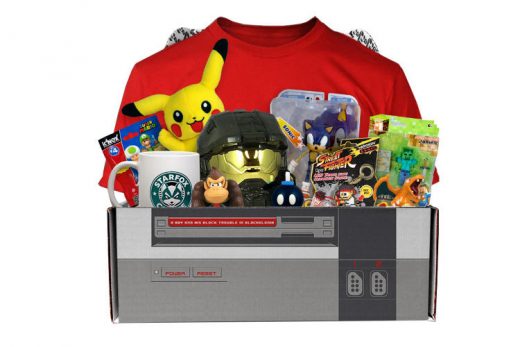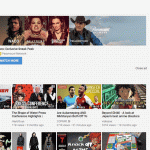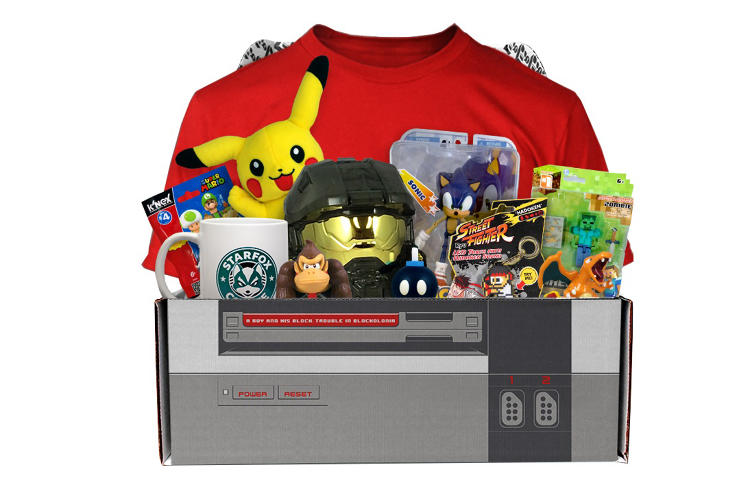Nerd Box Wars: How Loot Crate And Funko Fueled A Subscription Business Boom
When I ask Loot Crate cofounder Matthew Arevalo how the company stands out from its subscription-box competitors, he almost seems perturbed by the question.
For the last four years, Loot Crate has delivered mystery boxes full of geeky collectibles—T-shirts, vinyl figures, comics, and other assorted tchotchkes—on a subscription basis, like a cheese-of-the-month club for fans of Batman and Doctor Who. Those subscribers propelled Loot Crate to $116 million in revenue in 2015, and a No. 1 ranking on Inc.‘s list of the fastest-growing private companies in America. This year, Arevalo expects revenues to reach $200 million. Yet he doesn’t describe the company as a subscription-box business.
“We’re kind of a different business altogether,” he says, pointing to all the things Loot Crate does to enhance its business beyond placing items in boxes. This includes video production, social media outreach, a massive presence at events like Comic-Con, and creative partnerships with entertainment brands. He rejects direct comparisons to other services like Nerd Block and 1UP Box, referring to them as competitors only in the past tense.
“I can tell you, from what Loot Crate was last year, when we were positioned as strictly a subscription-box company, that the closest competitor in our space was at least five to six times smaller than we are and was doing unlicensed kind of products that are not on the same level or engagement as we are doing,” he says.
Which doesn’t mean life is easy at the top. As Loot Crate’s business booms, entertainment brands such as Marvel and collectible makers like Funko are paying closer attention—and in some cases, creating subscription alternatives. Brick-and-mortar retailers have started dabbling in mystery-box sales. And subscribers, spoiled by a glut of options, are expecting better products at lower prices. These are high times for nerd boxes, but the business is becoming cutthroat.
That might explain why Loot Crate raised $18.5 million in venture funding last June—its first outside investment. To keep growing, companies like Loot Crate must become greater than the sum of their geek sundries.
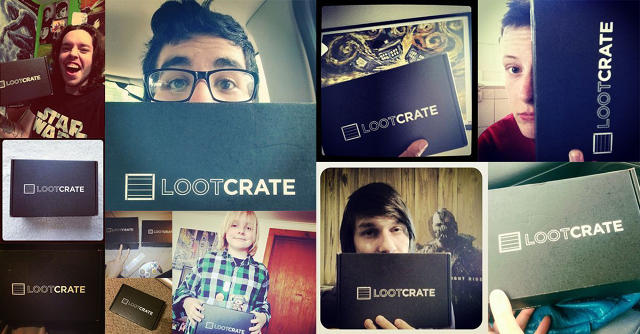
Waving The Geek Banner
Subscription boxes have been around for decades, but they’ve become a bigger phenomenon over the past five years as the internet has allowed niche subscription businesses to find devoted audiences. Beyond utilitarian services such as Dollar Shave Club and Blue Apron, there are subscription boxes for socks, snacks, fashion, beauty, and sex toys. Venture capitalists have collectively poured $1.4 billion into subscription box startups since 2010, the Wall Street Journal reports.
What’s unique about geek boxes like Loot Crate is how they’ve tapped people’s urge—enabled by the internet and social media—to identify and congregate around fandom.
“Nerd collectibles are something to be celebrated now, not something to be hidden,” says Russ Montague, the president and cofounder of subscription-box service Nerd Block. “When I went to school, you kind of kept it to yourself when you were nerd or a geek, and I think we all remember that time. Now, it’s a badge of honor that you wear with pride.”
Major entertainment companies have caught on, turning fandom into a lucrative business. The steady flow of interconnected superhero films, serial dramas such as The Walking Dead, and game franchises like Halo are all designed to fuel never-ending obsessions. According to a report by analyst firm Piper Jaffray, superfans of a film like Star Wars will consume content on sites like YouTube and AwesomenessTV for five times longer than they spend watching the actual movie.
Those passions, in turn, feed a massive merchandising machine, which allows people to wear their allegiances on their sleeves. It’s worth noting that Disney recently announced its full theatrical schedule through 2019, allowing the hype cycle to begin earlier and priming the pump for more merchandising sales.
“When I was growing up, your social badge was whatever you participated in—your sports or your clubs,” Piper Jaffray analyst Stephanie Wissink says. “What’s happening now is, in order to earn social currency or popularity, you take on an affinity for something that has merit. And I think that’s a little bit of what these product-curation companies do is, they help [people find] that sense of a social badge.”
All of this has been a huge boon for the geek-box business. Montague notes that when Nerd Block got started in 2013, toy makers and Hollywood studios didn’t see the point in lending their products to such a niche market. Now, he says, Nerd Block is overwhelmed with opportunities to create exclusive products.
“We have been surprised ourselves with how fast studios are coming out with new properties, or coming out with sequels, or planning things in advance,” Montague says. “From a nerd subscription service perspective, as long as they keep pumping out these great brands, it puts us in a really great position.”
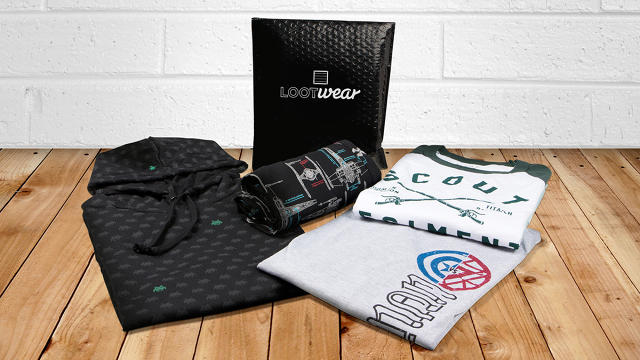
More Than Money
Within the greater toy and collectibles industry, the subscription-box business isn’t huge: Wissink estimates that it comprises less than 1% of the total market. But entertainment and merchandising companies believe there’s more to gain from these services than revenue alone.
For 343 Industries, the Microsoft studio that runs the Halo franchise, subscription boxes are a way to engage with a certain type of superfan who then spreads the word to his or her friends and social media followers. That’s why 343 recently teamed with Loot Crate on a bimonthly Halo-themed subscription box packed with figurines, apparel, replicas, and gaming accessories.
“So much of the secret sauce of Loot Crate is that they’ve created a community where people are excited about what they’re receiving. They’re excited about the brand, they’re posting, they’re unboxing, they’re filming things,” says John Friend, 343 Industries’ head of consumer products.
Even at $35 per month, the revenue from the Halo Legendary Crate will barely register as a blip on the franchise’s $1.5 billion merchandising business, but Friend sees the effort as worthwhile because of how it keeps fans in tune with the brand over time. He notes that one of the things early subscribers love the most is how Halo crates have a narrative element. (Each subscriber is supposedly inducted into an exclusive squad of Spartan super-soldiers dubbed “Fireteam Apollo.”)
“We can actually deliver products that are directly related to key things that are happening in games: entertainment initiatives we’re pursuing, all sorts of things,” Friend says. “And that, as a fan, is a much bigger experience than just putting on a Halo jersey.”
Beyond just engagement, the mystery-box model can be a valuable source of product research. Around 30% of Loot Crate’s subscribers respond to the company’s feedback forms for each shipment, and Loot Crate employs data scientists to sift through them all. The company also tries to analyze online sentiment outside of surveys and brings in focus groups to talk about the products. For a company like WWE, which is about to launch its own bimonthly crate, those insights have value.
“While WWE has an incredibly rich consumer product team and sells licensed products all around the world, this is a unique mystery-themed subscription that is totally new, that they’ve never done before, and it’s important for them to get information back on how well it’s received and what’s resonating,” Arevalo says.
Funko, a maker of vinyl figures and other collectibles that itself has ridden high on the fandom boom, sees subscription boxes as a way to experiment, according to Mark Robben, the company’s director of marketing. While these boxes only make up about 10% of Funko’s revenue, having a guaranteed audience allows the company to try out new products with less risk.
“It may be the only time we do it, it may be the beginning of a line, it may be something we’re going to test and get some feedback on. But because they’re such hardcore fans that participate in subscription boxes, it allows us to try some things and experiment, which was always something we told our fans we would do,” Robben says.
For example, as part of a subscription-box service run in conjunction with DC Comics, Funko created vinyl figures of Joker and Harley Quinn as they appeared in Suicide Squad. Both subscribers and DC were thrilled with the result, so Funko decided to expand the line and introduce it to retail stores.
“It wasn’t necessarily a thing that we were saying we were going to do or that we were going to roll that out in other places,” Robben says. “But the feedback was so positive, it was like, there’s something here.”
A Box For Every Brand
Now that the geek box business has gotten enough traction with entertainment companies and collectible makers, a new trend has emerged: The boxes are unbundling. They’re targeting specific properties with a laser focus.
Nerd Block started offering a gaming-specific “Arcade Block” in 2014, and has since added sci-fi, comic, horror, and kids options. Loot Crate followed with a pet-specific offering in 2015, and added gaming and anime boxes earlier this year.
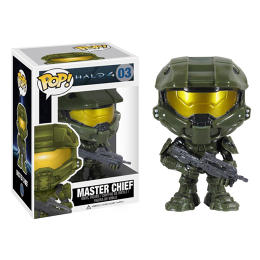
Now the market is fragmenting even more. Beyond just Halo, Loot Crate is making bimonthly boxes for WWE, Marvel, and the cult 2002 TV show Firefly. The company also offers one-off limited-edition boxes for franchises like Gears of War, Call of Duty, and Star Wars. Funko now offers subscription boxes for Marvel, DC, and Star Wars, and plans to launch a Disney-based subscription plan next year. Nerd Block’s Montague says his company is working with studios on several brand-specific boxes as well.
This is the logical outcome for an industry whose sales pitch to entertainment companies hinges on stoking superfan obsessions. As Funko’s Robben notes, brands like Marvel don’t necessarily want to share box space with their competitors or risk not being included at all. They want omnipresence.
“I think the challenge for them is that you’re not necessarily going to have something Marvel in every single Loot Crate or Nerd Block box,” Robben says. “If the theme is Superman, then Marvel’s probably out of luck for that particular box.”
On some level, unbundling works out nicely for consumers, retaining a sense of surprise with less risk of being disappointed by what’s inside. But it could also have a downside if consumers can’t access the best products without multiple subscriptions. That’s already happening with Funko, which has stopped supplying Marvel, DC, and Star Wars figures to other subscription boxes such as Loot Crate and Nerd Block.
“We’re walking a fine line, and a gray area, I guess, in terms of saying, ‘Well, we’re obviously not going to compete with ourselves and supply a Loot Crate with Marvel characters anymore,'” Robben says. “But, we don’t have a gaming box, and if we’re going to send gaming or anime characters to Loot Crate, that’s fine.”
Speaking to these companies, I get the sense that there’s an arms race underway. The big entertainment franchises want exclusive partnerships, which means subscription-box makers need to lock up as many as they can or risk losing the fanbase that creates the unboxing videos and posts their bounties to social media. Without that community, there’s little incentive for entertainment franchises to pay attention.
Suddenly it’s clear why a company like Loot Crate needs to raise venture capital: Building those partnerships requires manpower and money. Those who can’t grow fast enough right now are doomed to whither away.
“Right now, there’s a large audience that’s willing to try any subscription box. But what you’re seeing is, that audience is maturing as well,” Nerd Block’s Montague says. “They’re starting to understand that companies like Nerd Block and Loot Crate and Funko, they mean quality, they mean excellence, they mean exclusives. They’re partnered with the celebrities and the big brands, where [smaller subscription providers] are starting to only be able to order out of catalogs.”
While Montague does include his own company in that mix, Nerd Block is looking to hedge his bets. The company is now seeking outside funding for new ventures entirely outside the geek arena.
“We’ve really mastered how the subscription industry as a whole works,” he says. “The nerd space is great, and we love it, and we’ve got new boxes we’re launching, and big partnerships with big studios that we’re launching. But we’re also getting into some unaddressed markets in the subscription box space.”
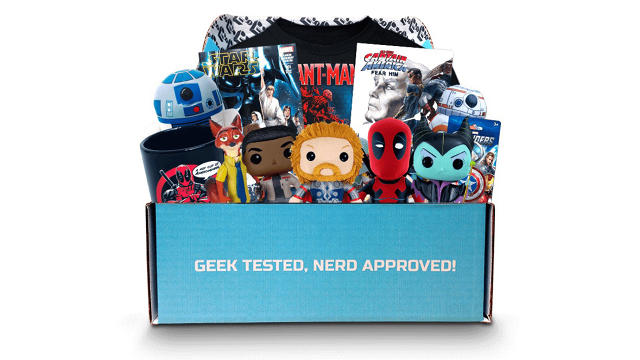
Post-Subscription
Most people I spoke to for this story believe the subscription nerd box business will continue to grow, if only because there are still new fandoms and demographics to pursue. Funko’s Robbens notes that women tend to be underserved, and 343’s John Friend said one of the major complaints with the first Halo boxes, now being addressed, was that the apparel didn’t come in women’s sizes.
But it’s also possible that the next step is to undo the subscription model itself. Montague says within the next month or two, Nerd Block will be relaunching its website with a regular online store. He imagines some people will make one-off purchases, while others will look to complete partial sets of collectibles that have arrived through their mystery boxes.
“Not everybody is going to want to subscribe to things all the time,” he says.
Traditional retailers are also dipping their toes into the mystery-box business, but without a subscription model attached. During Black Friday last year, Funko offered a mystery box through GameStop, and it sold out within days. The company is now working with both GameStop and Walmart on new mystery boxes, and Robben expects that other retailer partnerships will follow.
“I think that’s how physical retail decided they would participate in this model,” Robben says. “The way that works best for them was to sell these mystery boxes in their stores. Same form factor, same delivery method, same blind-box aspect to it, but it’s not a subscription. They want people coming into their stores, paying there, and leaving with the box.”
Retailers and standalone sales, however, would inherently lose some of the things that make the subscription-box business unique. There’s no guaranteed audience to experiment on, no recurring engagement with superfans, no feeling that you’ve embarked on some exclusive journey.
But for a company like Loot Crate, maybe those things are becoming less important. As Arevalo says, the business isn’t really about selling subscription boxes. It’s about selling fandom, and the company with the biggest entertainment partnerships is the one that stands to sell the most.
A box from Arcade Block, Nerd Block’s gaming-specific subscription
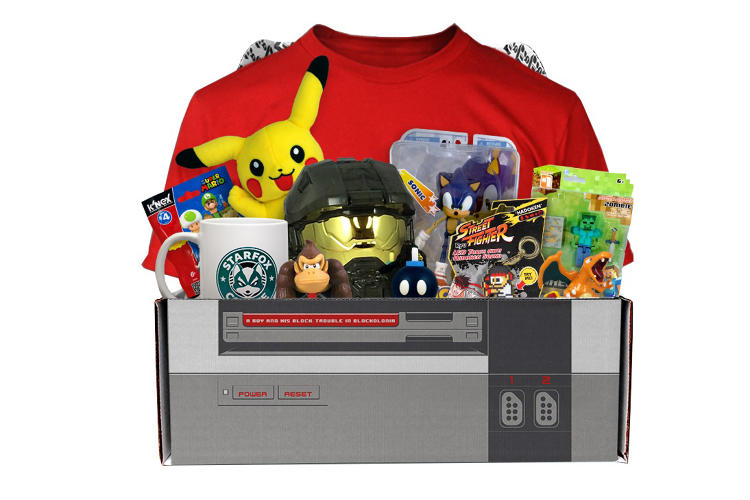
A Funko Mystery Box, as sold by GameStop
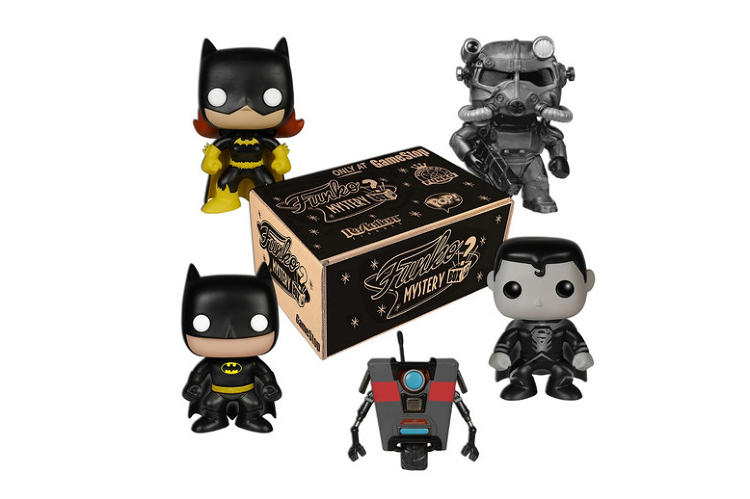
Halo Legendary Crate, a bimonthly Halo-specific subscription from Loot Crate
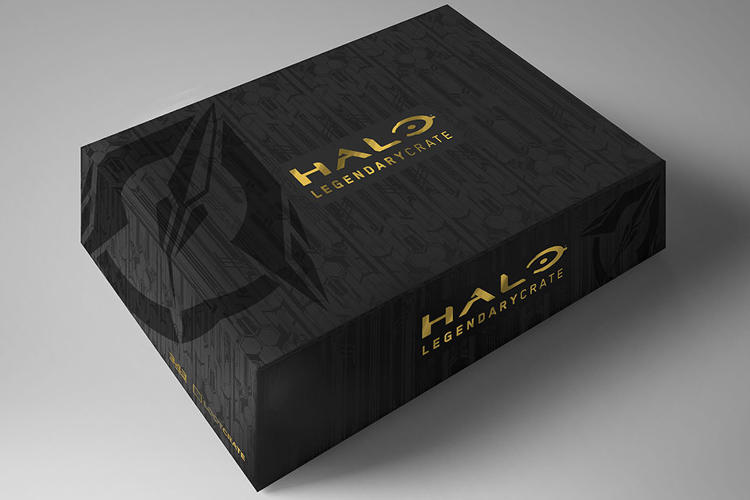
A monthly box from Loot Crate
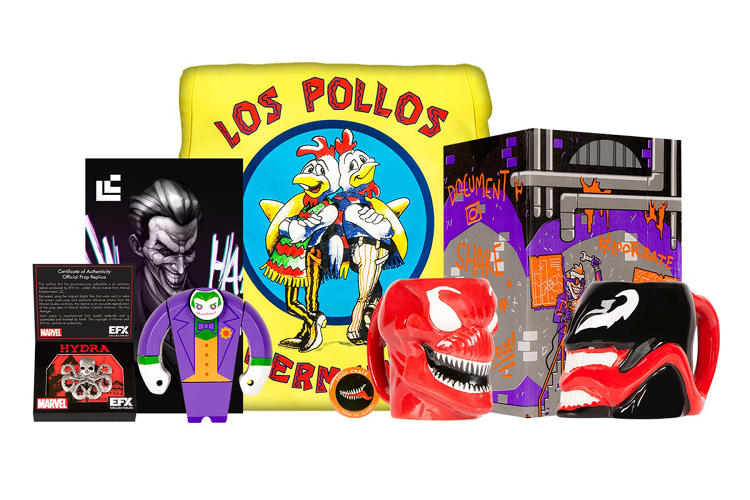
A monthly box from Marvel Collector Corps
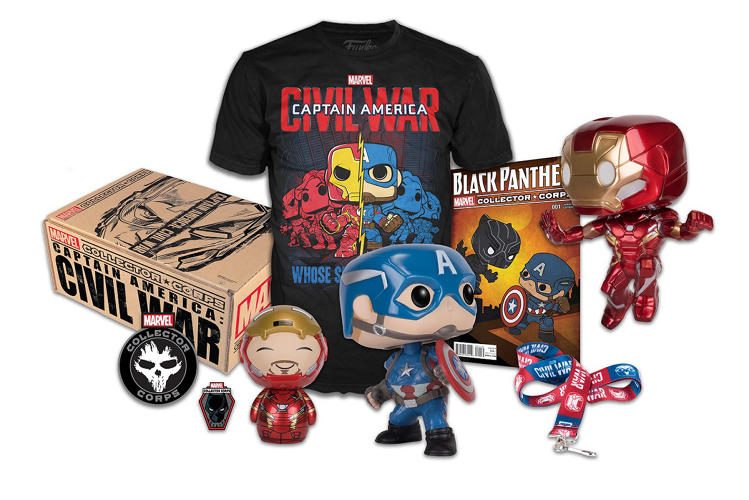
A monthly box from Loot Crate
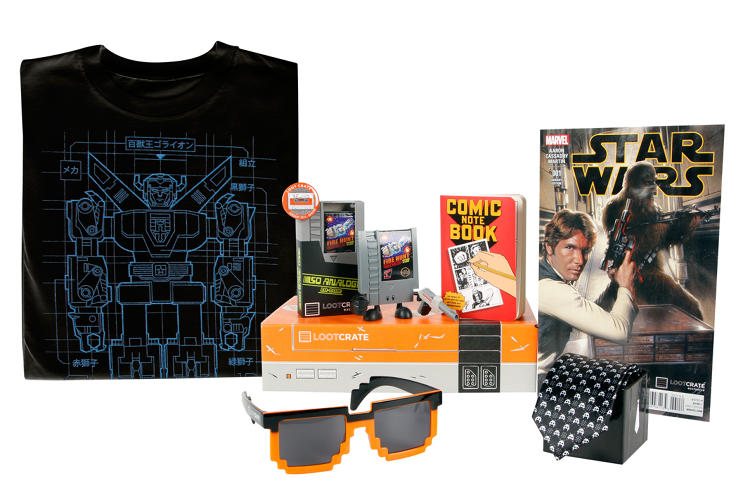
A monthly box from Loot Crate
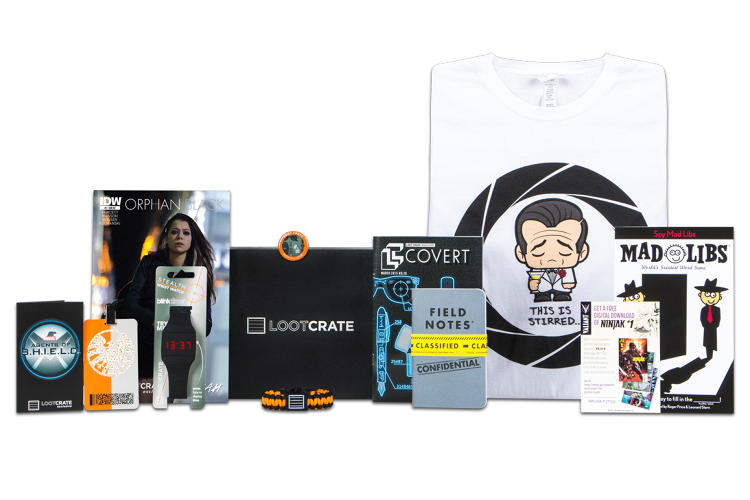
Fast Company , Read Full Story
(135)

